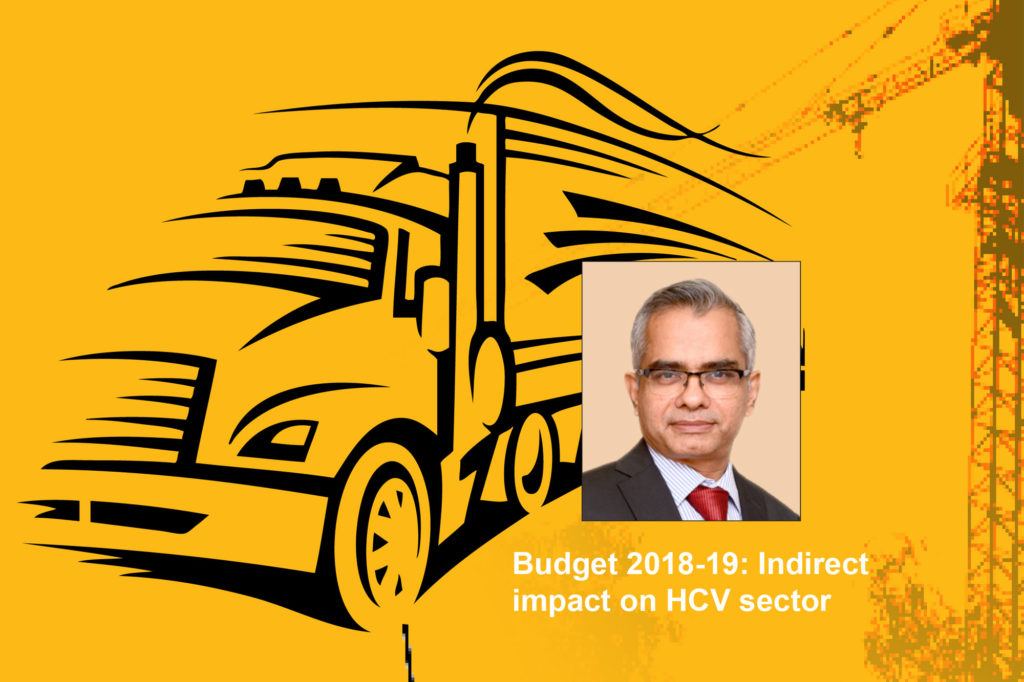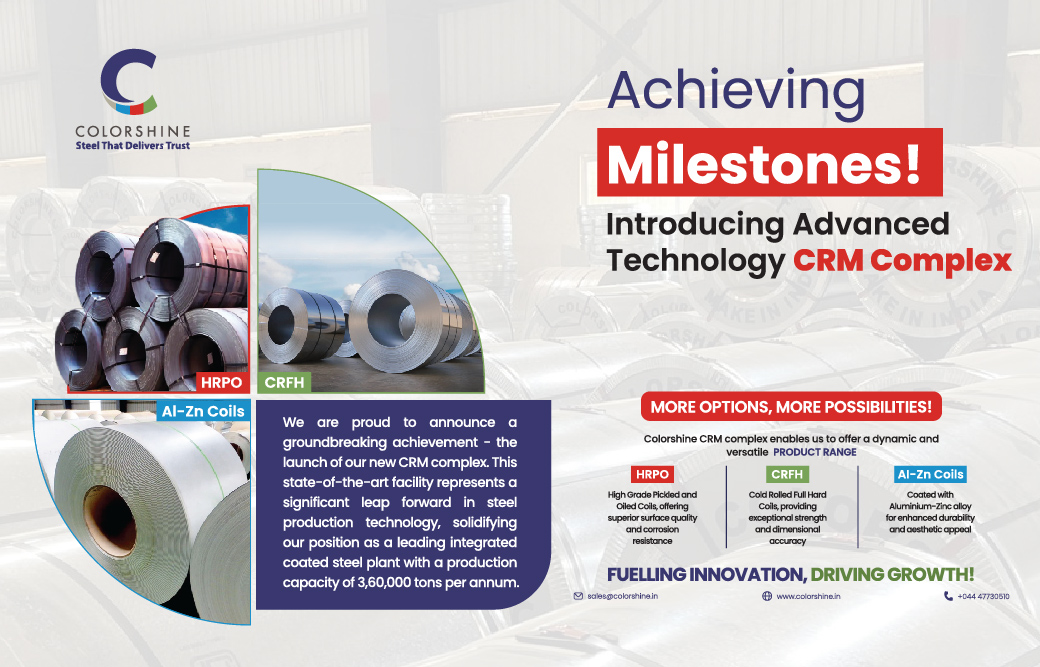Indian commercial vehicle market is anticipated to exhibit a CAGR of over 10 per cent to reach $ 21.9 billion by FY2023, on account of escalating infrastructure development projects, growing logistics sector, ease of financing, etc. The total market size for commercial vehicle in India will remain at 7.5 lakh units in FY18. Medium and Heavy Commercial Vehicle (M&HCV) is expected to grow between 1-3 per cent while the entire CV segment is expected to grow by 5-6 per cent in FY18.
The commercial vehicle segment in India is the most exposed segment to the factors involving economic and developmental activities. The commercial vehicle manufacturers were essentially focusing on profitability of the fleet owner by providing a product, which is good in terms of operating cost, primarily by way of improving fuel efficiency.
Impact of Budget 2018-19 on the Indian HCV Industry
After the implementation of GST, many indirect taxes have been bundled for one nation, one tax; however, with various GST slabs, additional cess and frequent changes have created a lot of uncertainty particularly in the automobile sector. The budget allocates reduction in the corporate tax to 25 per cent for companies with turnover of Rs. 250 crore.
Subrata Ray, Senior Vice President and Group Head- Corporate Rating, ICRA Limited says, “In line with expectations, the budget for FY 2018-19 didn’t provide any direct benefits on the indirect tax front to the automobile sector. Accordingly, the CV sector will continue to reap benefits of Government’s plans to significantly increase allocation towards rural economy and infrastructure sector, especially development of roads and highways including the Bharatmala project and those in rural areas. These investments will not only support sales of vehicles used for providing last mile connectivity but will also be positive for tipper sales that constitute approximately 25-30 per cent of M&HCV Truck sales in India and have registered healthy growth (25-30 per cent) during the 12-15 months.“
“The increase in custom duty on CBUs to 25 per cent from 20 per cent is unlikely to have material impact on the CV sector as only a miniscule proportion of vehicles are imported in CBU format as most foreign OEMs either have complete manufacturing or assembly operations in India,” he adds.
Binaifer F Jehani, Director, CRISIL Research assessed, 5-7.5 per cent increase in custom duty on fully built vehicles (FBVs), completely built units (CBUs), completely knocked down (CKD) units, and automotive components across vehicle and component categories. So, custom duty increase for automotive components and FBVs will not have a significant impact, since the extent of localisation is already high in commercial vehicle industry.
Heavy vehicles (GVW>12 tonne) to have presumptive income of Rs. 1,000 per tonne per month, while lighter trucks will continue to have presumptive income of Rs. 7,500 per month. While, a round 50 percent of transporters currently opt for presumptive tax scheme. With an increase in presumptive income from Rs. 7500 per month to Rs. 1,000 per tonne per month for heavy trucks (GVW> 12 tonne).Hence presumptive monthly income of a transporter with 16T GVW truck will be Rs. 16,000 and that with a 25T GVW truck will be Rs. 25,000.
“As per our assessment, transporters with trucks >= 25 tonne GVW may not opt for presumptive tax. The budget allows an increase in customs duty to 15 per cent from 10 per cent on radial tyre imports for trucks and buses. 25-30 per cent of radial tyres for trucks and buses are imported; increase in customs duty would increase price of imported tyres by Rs. 500/ tyre. Transporters using imported radial tyres to be marginally impacted,” says Jehani.
The budget allocates reduction in corporate tax from 30-25 per cent for companies having turnover less than Rs. 250 crore. “Around 20 per cent of transporters are large fleet operators (own a fleet of more than 20 trucks). Reduction in corporate tax will help many large fleet operators and aid their margins,” she asserts.
The commercial vehicle (CV) sector will continue to reap benefits of Government’s plans to significantly increase allocation towards rural economy and infrastructure sector.
Subrata Ray, Senior Vice President and Group Head- Corporate rating, ICRA Limited
Custom duty increase for automotive components and FBVs will not have a significant impact, since the extent of localisation is already high in commercial vehicle industry.
Binaifer F Jehani, Director, CRISIL Research
Cookie Consent
We use cookies to personalize your experience. By continuing to visit this website you agree to our Terms & Conditions, Privacy Policy and Cookie Policy.


















